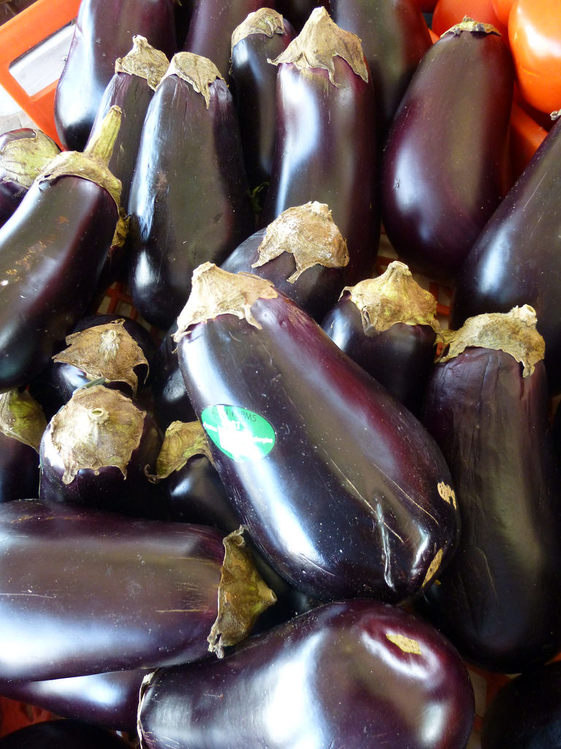Pros
According to The World's Healthiest Foods, eggplant contains a healthful assortment of phytonutrients, many of which have antioxidant properties. These phytochemicals protect against cancer, microbial infection, and high cholesterol. Eggplant skin contains a phytonutrient called nasunin which protects brain cell membranes from damage. When laboratory animals were given eggplant juice, their high cholesterol levels were reduced and their blood vessel walls relaxed, improving their cardiovascular health. Eggplant is a good source of dietary fiber, vitamins B1 & B6, manganese and copper.
?
Nasunin binds with iron and removes it from cells. This can be healthful for people with excess iron stores, but obviously should not be consumed in excess by people already low in iron. Nasunin also inhibits the growth of new blood vessels, which protects against the growth of cancerous tumors, but also may slow healing or prenatal development.
Fun fact: nobody appears to know how many calories eggplant has. I saw it listed in various places as anywhere from 2-35 calories/cup. In any case, it is low in calories (as long as you don't douse it in oil) and very low in sugars.
It appears, however, to be fairly high in sodium. Or not. How on earth is one to get reliable nutritional data?
Cons
Eggplant contains a measurable level of oxalates, which at high enough concentrations in bodily fluids can crystallize and cause stones in kidney or gall bladder. For this reason, individuals who already have kidney or gall bladder trouble are often advised to avoid eggplant.
Nightshade plants (which also include potatoes, tomatoes, and other things we routinely eat) contain a chemical called solanine which is a natural pesticide. In large enough quantities, this chemical is toxic to humans and can cause gastrointestinal and neurological symptoms. Actual solanine poisoning episodes have mostly been recorded with potatoes (you know, those green ones they warn you about), and eating too many potatoes seems more dangerous than eating too much eggplant.
Some people appear to be convinced that they were poisoned by eating a relatively small amount of eggplant. I don't know what to make of that, although the author of this post suggests that the problem may specifically be underripe eggplant. (But how can you tell if an eggplant is underripe??)
Some degree of eggplant allergy appears to be common, at least among Indian women.
Take-home message, I would imagine, is the usual: "All things are poison and nothing is without poison; only the dose makes a thing not a poison." In this case, I have seen the dose required for death-by-eggplant cited as everything from 13 lbs-36 eggplants. In any case, a lot.
